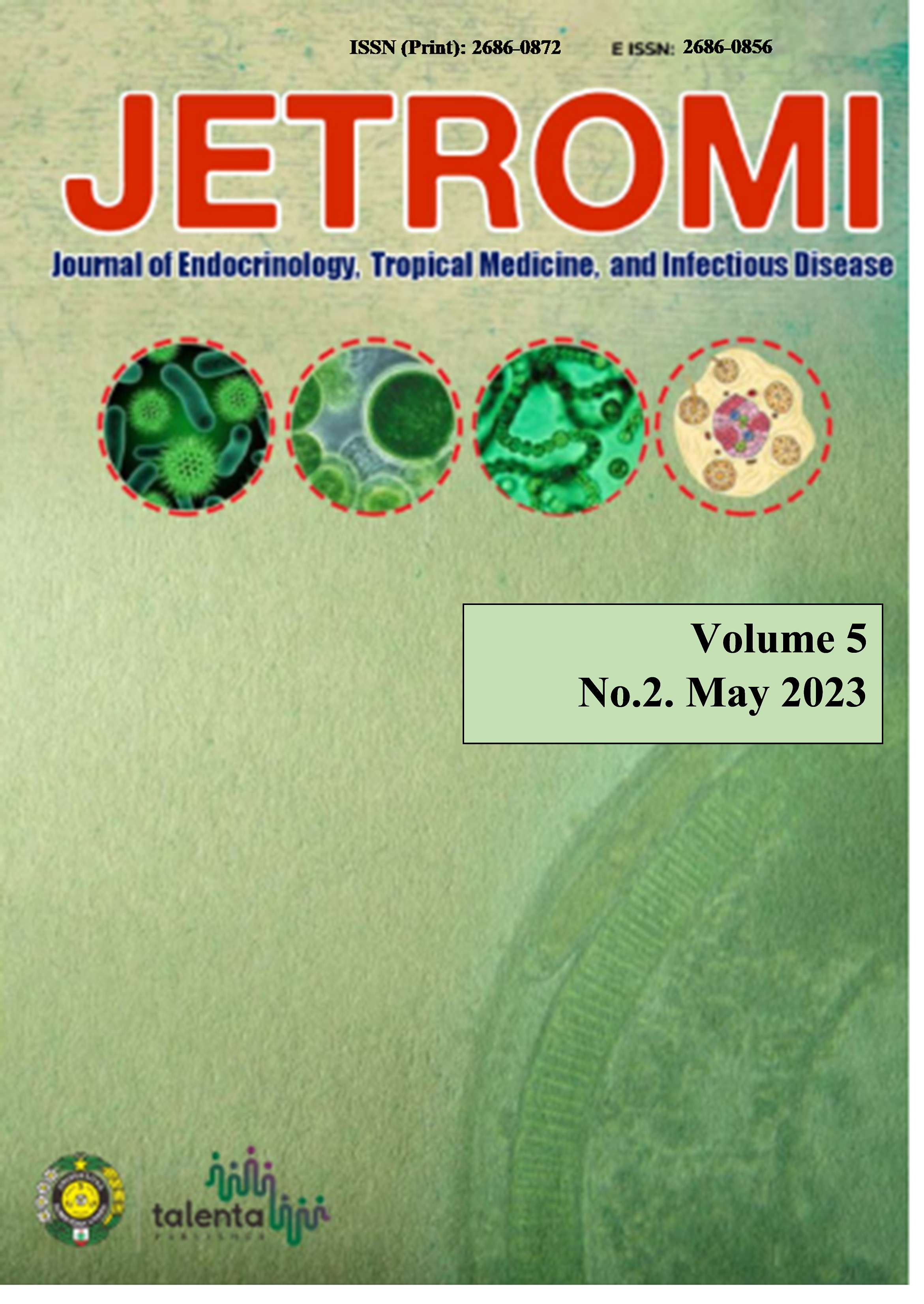Six Months of Bedaquiline-Pretomanid-Linezolid (BPaL) Regimen in Patients with Drug-Resistant Tuberculosis: A Narrative Review
DOI:
https://doi.org/10.32734/jetromi.v5i2.12373Keywords:
: Drug-resistant TB, BPaL, Efficacy, SafetyAbstract
Background: Drug-resistant tuberculosis (DR-TB) is more difficult to treat with multiple therapies and a longer duration than drug-sensitive tuberculosis. Pre-XDR and XDR-TB are highly DR-TB with a lower success treatment than MDR-TB. Therapy for high DR-TB with fewer drugs and shorter treatment is required to increase the success of treatment. We comprehensively reviewed the risk factors for unfavorable outcomes (death, treatment failure, and loss of follow-up) related to all oral regimens containing bedaquiline and or delamanid in patients with MDR-TB.
Method: This was a narrative review to summarize the role of the BPaL regimen to manage highly DR-TB patients.
Results: The six months of BPaL regimen was reported to provide treatment success in two previous trials, Nix and Zenix TB. BPaL offers treatment success, especially in highly DR-TB compared to standard regimens containing bedaquiline. However, several adverse effects, such as myelosuppression, peripheral neuropathy, and optic neuritis were more common in BPaL regimens than in standard regimens. In addition, the incidence of QTc interval prolongation was lower in BPaL regimens compared with standard regimens. It is mandatory to monitor adverse effects associated with linezolid in the BPaL regimen and how to manage them.
Conclusion: This review concludes that the BPaL regimen provides treatment success over six months of treatment. Health facilities should prepare for the implementation of BPaL to manage DR-TB patients.
Downloads
Downloads
Published
Issue
Section
License
Copyright (c) 2023 Journal of Endocrinology, Tropical Medicine, and Infectious Disease (JETROMI)

This work is licensed under a Creative Commons Attribution-NonCommercial-ShareAlike 4.0 International License.
The Authors submitting a manuscript do so on the understanding that if accepted for publication, copyright of the article shall be assigned to Journal of Endocrinology, Tropical Medicine and Infectious Diseases (JETROMI).
Copyright encompasses exclusive rights to reproduce and deliver the article in all form and media. The reproduction of any part of this journal, its storage in databases and its transmission by any form or media, will be allowed only with a written permission from Journal of Endocrinology, Tropical Medicine and Infectious Diseases (JETROMI).








